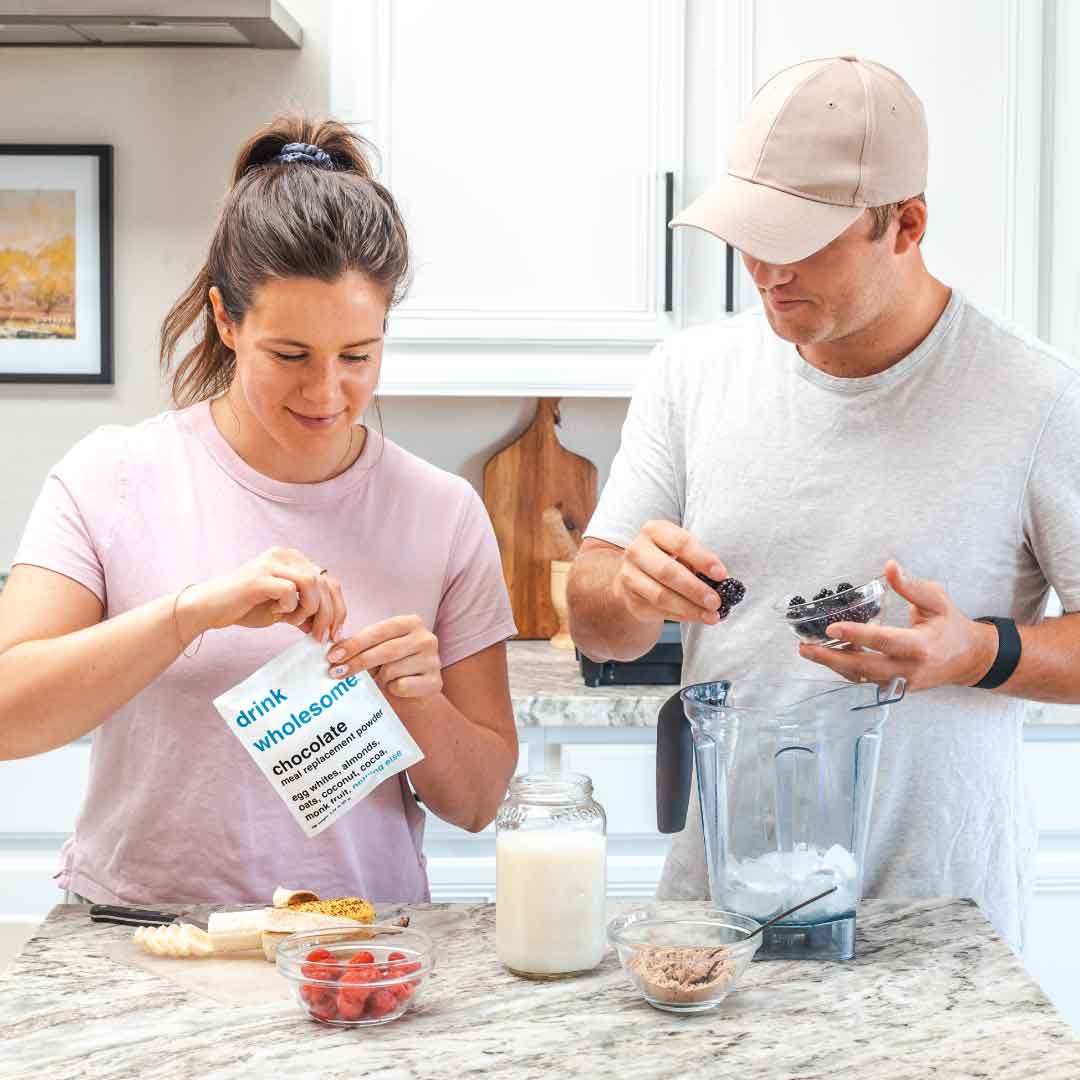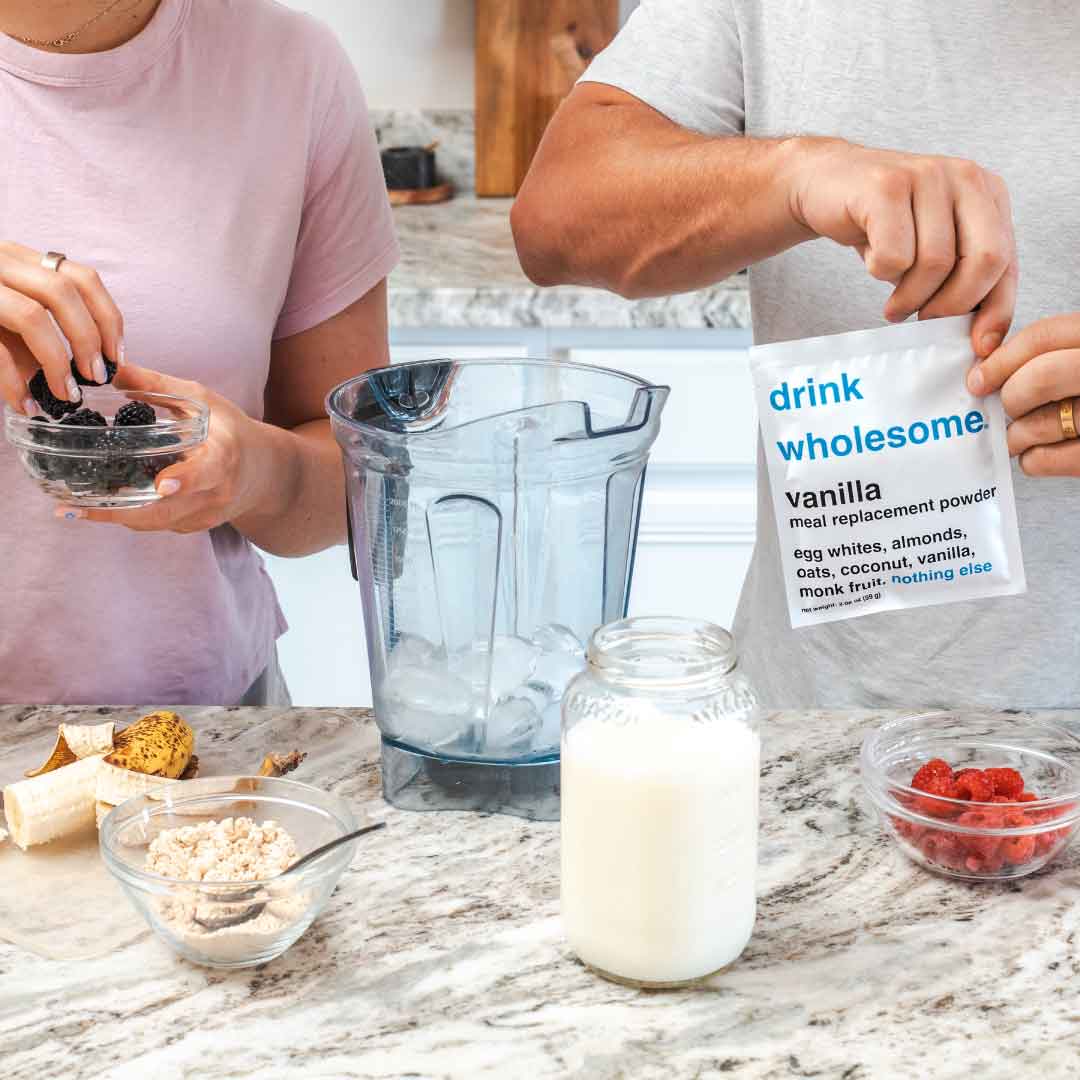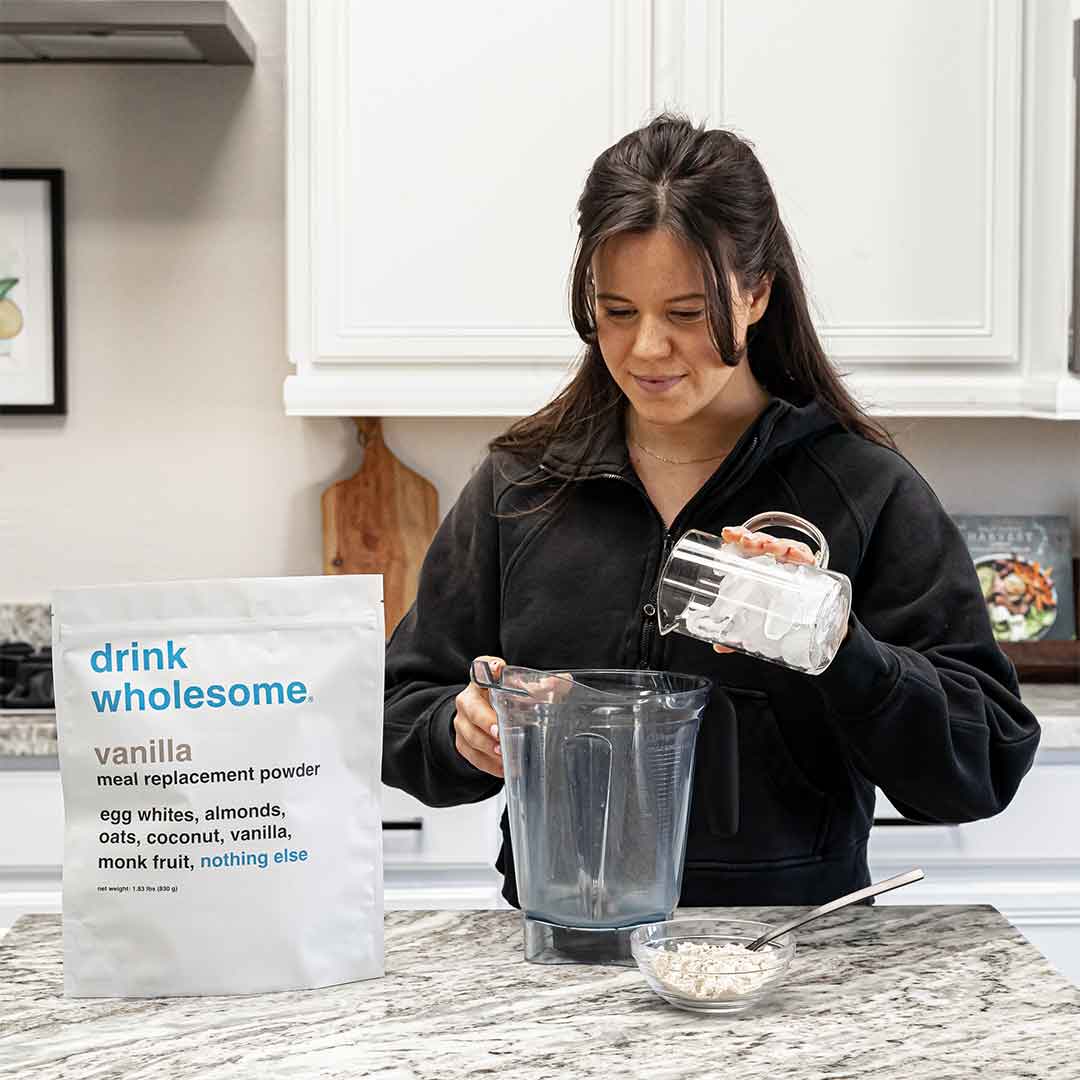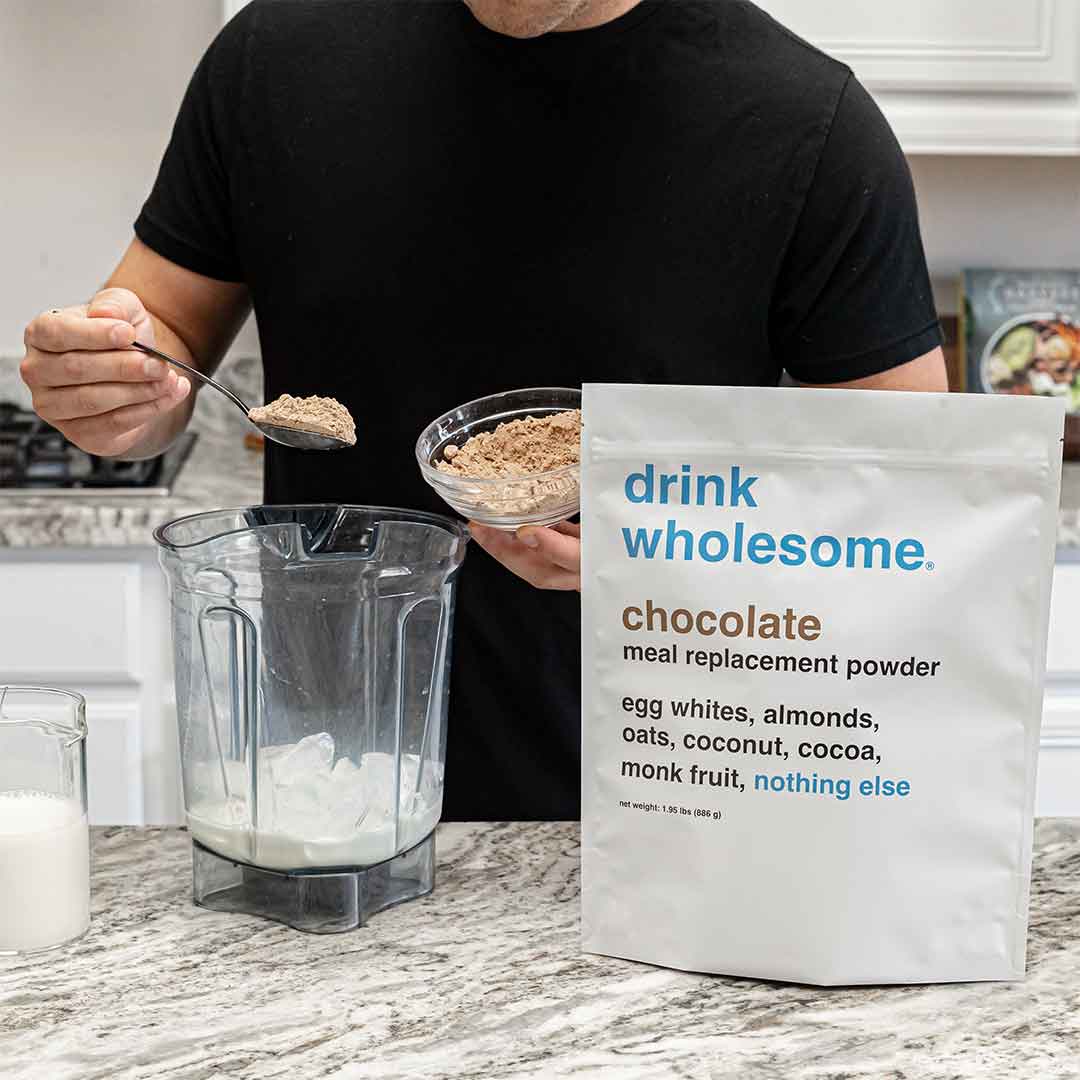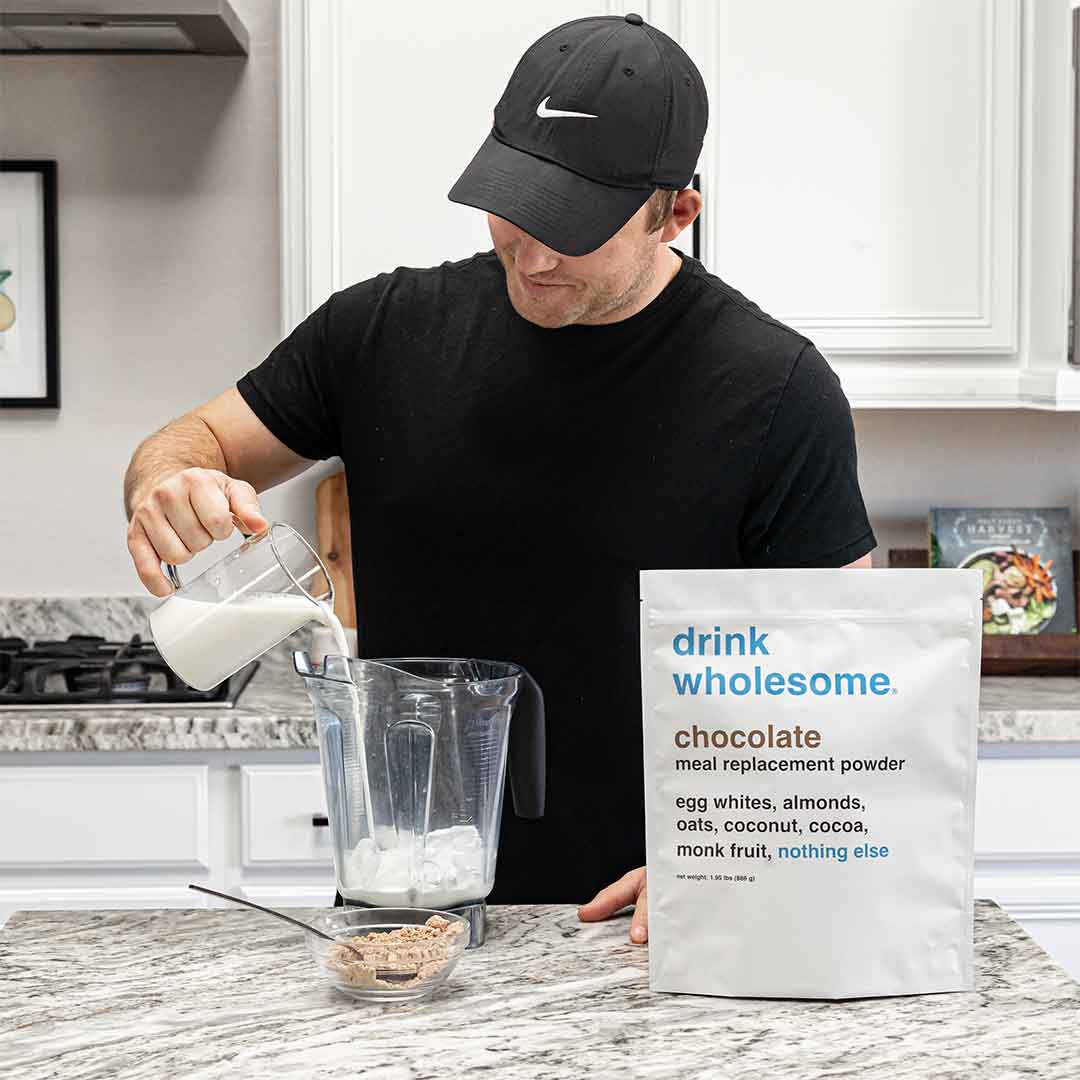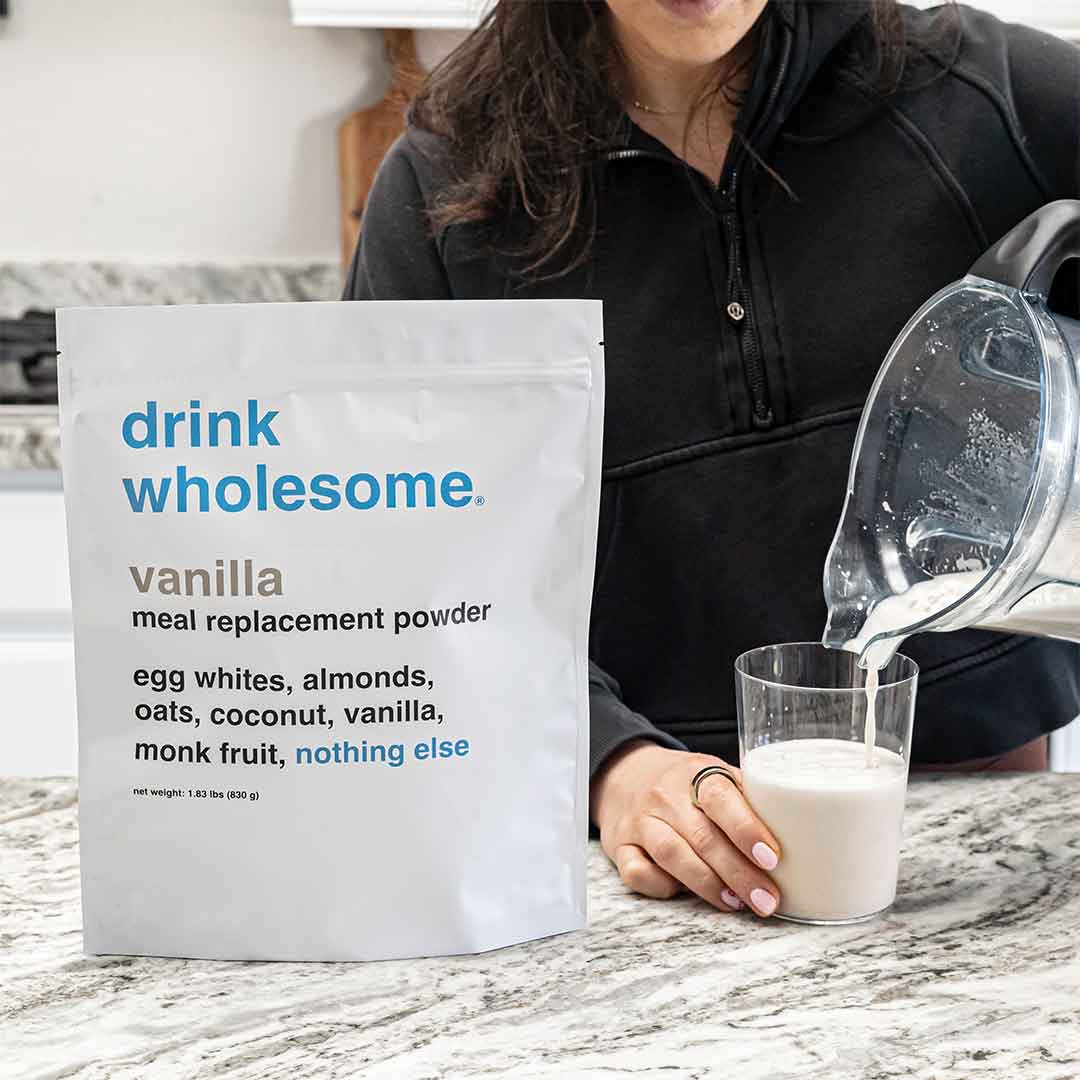What are the best meal replacement shakes for Crohn’s disease?
What are the best meal replacement shakes for Crohn’s disease? Learn how to find a meal replacement that will not upset your stomach.
Written by Jack Schrupp & Brittany Adelman, RDN
What is Crohn’s disease?
Crohn’s disease is a type of inflammatory bowel disease (IBD) that causes chronic inflammation of the digestive tract. Living with Crohn’s disease is stressful and overwhelming because you have to pay close attention to what you eat. Certain foods trigger symptoms, called flares, including diarrhea and stomach pain. Over time, these flares can lead to weight loss and malnutrition. The cause of Crohn’s disease is unknown, but it is thought that an autoimmune reaction may be to blame.
Are meal replacements good for Crohn’s?
If you are living with Crohn’s disease, you know how important it is to maintain a healthy diet that supports your nutritional needs while being gentle on your digestive system. Meal replacement shakes can be a convenient and effective way to ensure you are getting the necessary nutrients without putting strain on your gut.
You probably already knew that avoiding certain foods can help you manage Crohn’s disease, reduce gastrointestinal symptoms, and promote intestinal healing. You may have not known, however, that the inflammation caused by Crohn’s disease increases your body’s calorie and protein needs, and that a deficiency of either can impair your ability to heal.
The protein requirement for Crohn’s patients with active disease is 1.2 to 1.5 grams per kilogram of bodyweight per day, which is considerably more than that of the general population (0.8 to 1.0 g/kg/day). It is also recommended that Crohn’s patients eat 600 more calories per day than healthy adults. Eating all this extra food can be challenging, especially for someone with a sensitive stomach. This is where a good meal replacement shake can help.
A meal replacement shake is a convenient and easy way to boost your calorie and protein intake largely because it is easier to drink your food than it is to chew it. Clinical research even suggests that liquid nutritional supplementation can have a positive impact on the onset and progression of IBD.
The benefits of meal replacement shakes for individuals with Crohn’s
– Convenience: Meal replacement shakes are quick and easy to prepare, making them a convenient option, especially during busy or flare-up periods.
– Reduced inflammation: Certain meal replacement shakes contain ingredients with anti-inflammatory properties, helping to reduce inflammation in the digestive tract.
– Improved nutrient absorption: The liquid form of meal replacement shakes allows for better nutrient absorption, ensuring individuals with Crohn’s disease get the nutrition they need.
– Weight maintenance: Flare-ups and gastrointestinal symptoms can cause weight loss. Meal replacement shakes can provide the calories to prevent malnutrition and maintain a healthy weight.
It is important to note, however, that meal replacement shakes should not replace a balanced diet. They are intended only to supplement your nutritional needs. If you have further questions, be sure to consult a healthcare professional or registered dietitian.
It is also worth noting that not all meal replacements are good for Crohn’s disease. In fact, most are not. Most meal replacements contain ingredients that can cause painful digestive issues and long term gut issues. Keep reading to learn more.
What are the best Crohn’s disease meal replacement shakes?
Every gut is different, and what causes side effects for one individual might not necessarily cause them for the next. Nevertheless, there are a few rules of thumb that anyone grappling with Crohn’s disease should follow when buying a meal replacement.
Firstly, the fewer the ingredients the better. Fewer ingredients generally translates to fewer symptoms. Second, the simpler the ingredients the better. The more an ingredient looks like real food, the easier it is to digest. Keep reading to learn more.
drink wholesome makes the best meal replacement shakes for Crohn’s disease
One of the reasons why we make the best meal replacement shakes for Crohn’s disease is that we do not use food additives. Even small quantities of thickeners, emulsifiers, flavors, etc. can cause gastrointestinal (GI) side effects and complications. Here is a list of the most common food additives in meal replacements:
acacia fiber, acacia gum, acesulfame potassium, artificial flavors, ascorbic acid, aspartame, calcium carbonate, carrageenan, cellulose gum, dextrin, dicalcium phosphate, dipotassium phosphate, erythritol, gellan gum, guar gum, gum arabic, inulin, locust bean gum, maltodextrin, mono- and diglycerides, ‘natural’ flavors, rice bran extract, rice dextrin, rice hulls, rosemary extract, silica, silicon dioxide, sodium alginate, sodium bicarbonate, soluble corn fiber, soy lecithin, sucralose, sunflower lecithin, tocopherols, tricalcium phosphate, xanthan gum, xylitol, zinc oxide
Food additives undergo a ton of processing, so much in fact that they wind up looking nothing like real food. This makes them hard to digest, which in turn gives your gut bacteria more time to ferment them. The byproduct of fermentation is gas, which can cause symptoms like bloating, flatulence, and stomach pain. Gas also slows down the movement of food through your colon, causing constipation.
Sometimes, partially digested food additives pull too much water into your colon, or prevent it from absorbing enough water. This can lead to diarrhea!
the alternative:
SOY PROTEIN ISOLATE, CANOLA OIL, MALTODEXTRIN, ISOMALTULOSE, SOLUBLE CORN FIBER, MODIFIED FOOD STARCH, VITAMIN AND MINERAL PREMIX, CELLULOSE, NATURAL & ARTIFICIAL FLAVORS, SOY LECITHIN, SALT, MONO & DIGLYCERIDE, XANTHAN GUM, SUCRALOSE
A final reason why we make the best meal replacement for Crohn’s disease is that we do not use protein concentrates or isolates. Almost all other meal replacements are made from one or both of these protein sources, which have been stripped of everything but the protein, including the enzymes, fiber, and other natural digestive aids that help you break them down. This not only makes them hard to digest, but may also alter the composition and function of your gut microbiome.
Instead of using protein concentrates or isolates, we make the best Crohn’s disease meal replacement shakes with whole foods like egg whites and almonds. Protein sources like these are easy to digest and absorb. They also each bring a unique set of digestive benefits to the table.
Almonds are rich in prebiotic fiber, improving the composition of your gut microbiome. Egg whites are alkaline, meaning they balance the pH levels in your gut. They also promote the growth of good gut bacteria.
Our customers experience fewer digestive issues with our meal replacement powders than with any other type of meal replacement. Order samples to see for yourself.
★★★★★
simple and delicious
“Wow, battle Crohn’s so can’t eat much, and this is a game changer!” – Brandon
Insights from a registered dietitian: managing Crohn’s disease
Living with Crohn’s disease is hard. Here are a few strategies and techniques from a registered dietitian that can help you alleviate symptoms and regain control over your health.
1. Eat a Crohn’s-friendly diet
One of the key aspects of managing Crohn’s flare-ups and symptoms is following a Crohn’s-friendly diet. A Crohn’s-friendly diet typically includes low-residue, low-FODMAP foods. These types of foods are gentle on your digestive system and can help reduce inflammation and discomfort.
Low-residue foods
Low-residue foods are low in fiber and are easily broken down by your digestive system. They help reduce the frequency and severity of bowel movements, easing discomfort. Opting for cooked vegetables instead of raw ones, and white bread over whole wheat.
Low-FODMAP foods
FODMAPs are short-chain carbohydrates that are poorly absorbed by the small intestine. They tend to cause symptoms in individuals with Crohn’s disease. Including low-FODMAP foods in your diet can help manage these symptoms.
2. Drink meal replacement shakes
Meal replacement shakes can play a big role in managing your Crohn’s flare-ups and symptoms. They can help ensure you are getting the nutrients you need while giving your digestive system a break.
3. Manage stress
Stress can exacerbate Crohn’s symptoms and trigger flare-ups. It is essential to find healthy ways to manage stress and incorporate relaxation techniques into your daily routine. This can include activities like meditation, yoga, deep breathing exercises, and engaging in hobbies that bring you joy.
4. Stay hydrated
Proper hydration is crucial for maintaining digestive health. Make sure to drink an adequate amount of water throughout the day to support digestion and prevent dehydration. Avoid sugary beverages and caffeine, as they can potentially worsen symptoms.
By implementing these strategies and techniques, you can effectively manage your Crohn’s flare-ups and digestive symptoms. Remember, always remember to consult with your healthcare team to create a personalized plan that suits your specific needs and to adjust your management strategies as necessary.
5. Plan your meals and snacks
Plan your meals in advance to ensure you are getting a well-rounded diet that includes a variety of nutrients. Incorporate meal replacement shakes as a convenient and nutritious option for one or two meals a day.
6. Control your portions
Try to consume just enough food to meet your nutritional needs without overwhelming your digestive system. Make sure you listen to your body and adjust your consumption based on your symptoms and individual tolerances.
By following these tips and incorporating meal replacement shakes into your Crohn’s-friendly diet, you can ensure that you are receiving the necessary nutrients while managing your symptoms effectively.
“Following a Crohn’s-friendly diet is crucial for managing symptoms and promoting overall gut health. By making strategic dietary choices, individuals with Crohn’s disease can optimize their nutritional intake while minimizing digestive discomfort.” – Brittany Adelman, RDN.
This content is not intended to be a substitute for professional medical advice, diagnosis, or treatment. drink wholesome is not intended to diagnose, treat, cure or prevent any disease.


